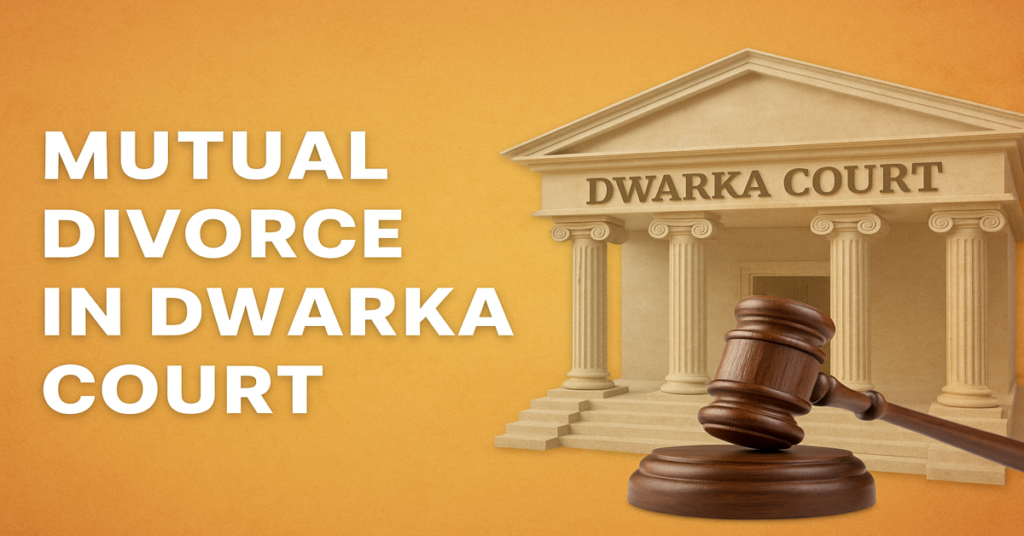Mutual divorce not only brings emotional challenges but also has a profound financial impact that can significantly shape your future. In the Indian context, where financial stability is closely tied to societal expectations, understanding and planning for the financial consequences of a mutual divorce becomes crucial. This blog aims to illuminate the financial impact of mutual divorce, and the points mentioned below must be considered while preparing the Mutual Divorce Agreement.
Assessing Assets and Liabilities
Embark on the journey by listing down things you both own and owe. It could be stuff like houses, jewelry, gadgets, furniture, savings, and debts. Don’t forget the dowry and stridhan items. This helps make things fair and square when dividing everything. Understanding what’s in the financial picture is the starting point for a fair and even distribution.
Navigating Alimony and Maintenance
After the divorce, the husband and wife must figure out how to support each other financially. If one needs help, the other can give monthly payments (maintenance) or a one-time sum (alimony). If neither needs help, they can agree to skip maintenance and/or alimony. If there are kids, the one with custody should plan for their future costs when deciding on maintenance or alimony.
An important point to remember is that while the husband and wife, being adults, can waive or finalize maintenance/alimony for each other, they cannot make a final decision for the minor child. Indian courts entertain applications to modify maintenance or alimony for the minor child, even at a later stage.
Navigating Alimony and Maintenance
Transitioning to a single financial entity requires thoughtful planning. Reassess your budget, set new financial goals, and create a realistic plan that aligns with your post-divorce lifestyle. After the divorce, the husband and wife must figure out how to support each other financially. If one needs help, the other can give monthly payments (maintenance) or a one-time sum (alimony). If neither needs help, they can agree to skip maintenance and/or alimony.
If there are kids, the one with custody should plan for their future costs when deciding on maintenance or alimony. An important point to remember is that while the husband and wife, being adults, can waive or finalize maintenance/alimony for each other, they cannot make a final decision for the minor child. Indian courts entertain applications to modify maintenance or alimony for the minor child, even at a later stage.
Reviewing Insurance Coverage
Take a careful look at your insurance policies, covering aspects like life, health, and property. If you have kids, especially consider their medical insurance—it’s really important. Also, don’t forget about any policies you might have for your child’s college education; these are crucial too. When creating the mutual divorce agreement, make sure to include all these considerations. It’s like ensuring a safety net for the future, making certain everyone is covered and well-protected.
Reviewing Beneficiary and Nominee Details
In the context of mutual divorce, examining beneficiary and nominee details becomes a crucial aspect of the financial and legal process. Whether it pertains to insurance policies, investments, or other assets, ensuring the accuracy of beneficiary and nominee information is paramount. Beneficiaries and nominees play a vital role in receiving benefits or assets in the event of the account holder’s passing. Regularly revisiting and updating these details is essential to guarantee that the designated individuals receive their entitled benefits, preventing potential complications during this critical phase. Whether prompted by life changes due to mutual divorce or other circumstances, reviewing beneficiary and nominee details is a proactive measure to secure financial interests and facilitate a seamless transition of assets as per the mutual agreement.
Educating Yourself on Tax Implications
Understand the tax implications of your financial decisions post-divorce. In India, tax laws may influence decisions related to property division, alimony, and other financial aspects. Seek guidance to optimize your tax position.
Protecting Your Credit Score
Joint financial responsibilities can impact credit scores. Ensure that joint debts are settled amicably, and consider closing joint accounts to safeguard your individual creditworthiness.
Investing for the Future
With newfound financial independence, explore investment opportunities that align with your goals. In the Indian context, options like mutual funds, fixed deposits, and gold can be considered based on individual risk tolerance.
Creating Emergency and Contingency Funds
Financial stability is bolstered by having emergency funds. Establish a contingency fund to cover unexpected expenses, providing a financial safety net during the transition and beyond.
Conclusion
In conclusion, mutual divorce not only brings emotional challenges but also has a significant impact on your finances, shaping your future. To navigate this journey effectively, consider the following key points outlined in the Mutual Divorce Agreement.
Start by assessing your assets and liabilities—list everything you both own and owe, ensuring a fair distribution. Understand that alimony and maintenance play a crucial role in post-divorce financial support. Plan carefully, especially if there are kids involved, keeping their future costs in mind.
Review your insurance coverage, including life, health, and property policies. Ensure accurate beneficiary and nominee details for a smooth transition of assets. Educate yourself on tax implications, seeking guidance to optimize your financial position. Protect your credit score by settling joint debts and consider closing joint accounts.
As you step into newfound financial independence, explore investment opportunities aligned with your goals. Consider options like mutual funds, fixed deposits, and gold based on your risk tolerance. Finally, bolster financial stability by creating emergency and contingency funds, providing a safety net during the transition and beyond. This comprehensive approach ensures a secure and well-planned financial future post-mutual divorce.




